Five-year-old Davit used to travel five kilometres from the village of Hartashen daily to reach the preschool in the town of Goris. Nearly two years ago, life changed for Davit and many other children when alternative preschool service centres were established in their village.
“Since there was no kindergarten in our village, I had to take my child to Goris, which was a significant burden. It was time-consuming and costly, and the commute during winter was difficult and dangerous. The centre’s opening has been important for both parents and children,” David’s mother, Sona Davtyan said.
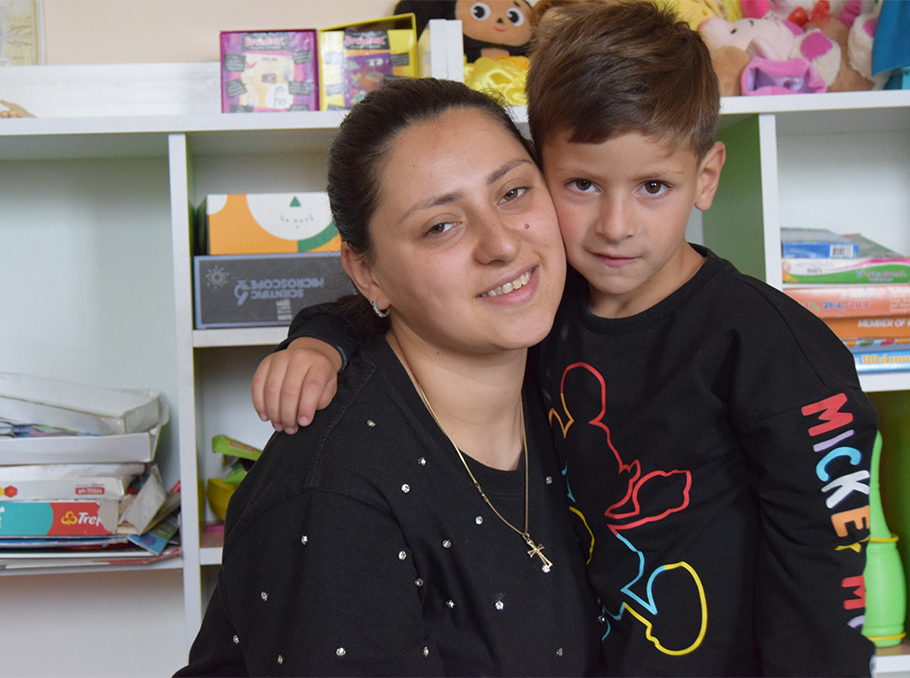 Sona and Davit
Sona and DavitPhoto: Mediamax
In addition to Hartashen, alternative preschool services were established in four other settlements in the Syunik region under the Future Today project, funded by the European Union. This initiative was implemented by UNICEF in collaboration with the United Nations Development Programme, the United Nations Population Fund, along with various local organisations. The project is part of the Resilient Syunik Team Europe initiative, aimed at promoting the sustainable socio-economic development of the Syunik region.
The “colours” brought to communities by alternative preschool services
“We see the difference in the children every day. They are learning sitting, standing, and socialising. Children with communication difficulties are starting to play with others and integrate. They go to school prepared,” Kristine Mashuryan, a methodologist at Hartashen alternative preschool service, said.
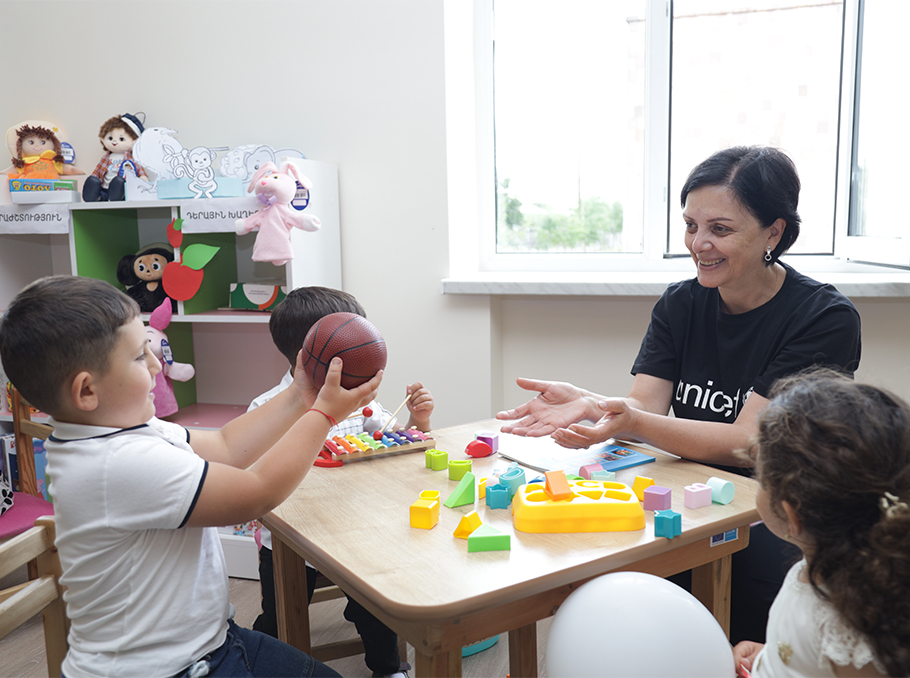
Photo: UNICEF
“While visiting these settlements, when you notice the difference in the same child’s communication and ability to express freely, you realise that the service has achieved its goal. The child’s emotional, communicative, and cognitive world transforms entirely. The launch of these services changes not just the child's life, but also the lives of their family and the entire village,” Maya Simonyan, UNICEF Early Childhood Development Programme Officer, said.
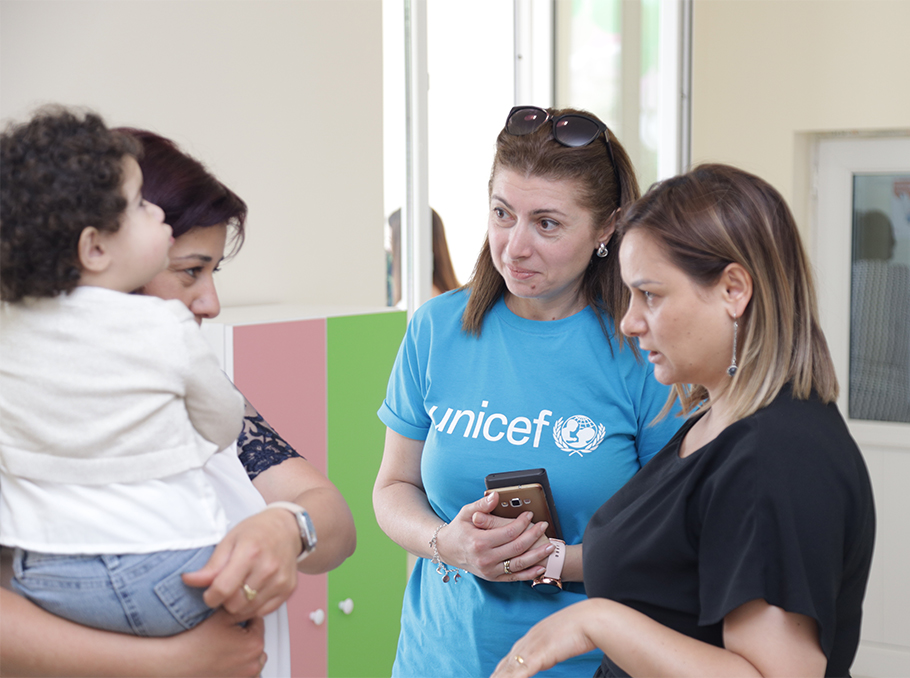
Photo: UNICEF
With the Future Today project, launched in 2020 and implemented over three years with the funding of the European Union, UNICEF aimed to establish alternative early childhood development services in remote, small, rural areas lacking preschools. The project targeted Lori, Tavush, Gegharkunik, Shirak, and Syunik regions. In Syunik, centres were opened in five rural settlements of the consolidated communities of Goris, Tegh, Sisian, and Meghri, and a total of 25 centres were opened across the target regions. More than five hundred children aged 3 to 6 had the opportunity to attend alternative preschool services.
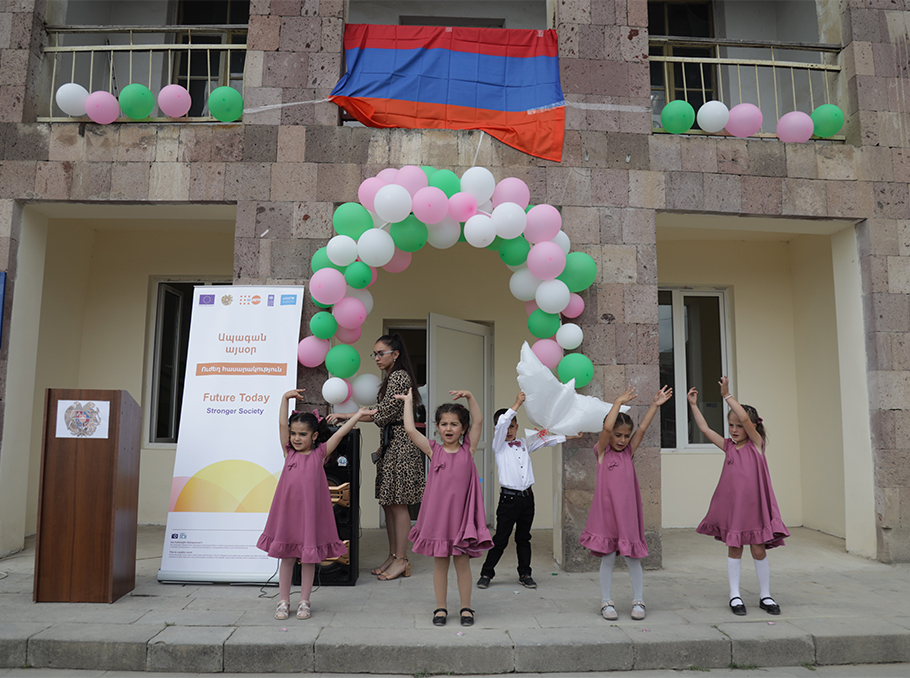
Photo: UNICEF
This service is organised for four hours a day, during which children go through the entire educational process, as in preschool establishments, minus the provision of sleep and meals.
“When we talk about small rural settlements, where adequate facilities and resources for long-term preschool services are often lacking, this is the best option. Since the community ensures the services and covers maintenance costs, it is also cost-effective,” Maya Simonyan said, adding that “for four hours, the children interact, play developmental games, and receive everything necessary for their development.”
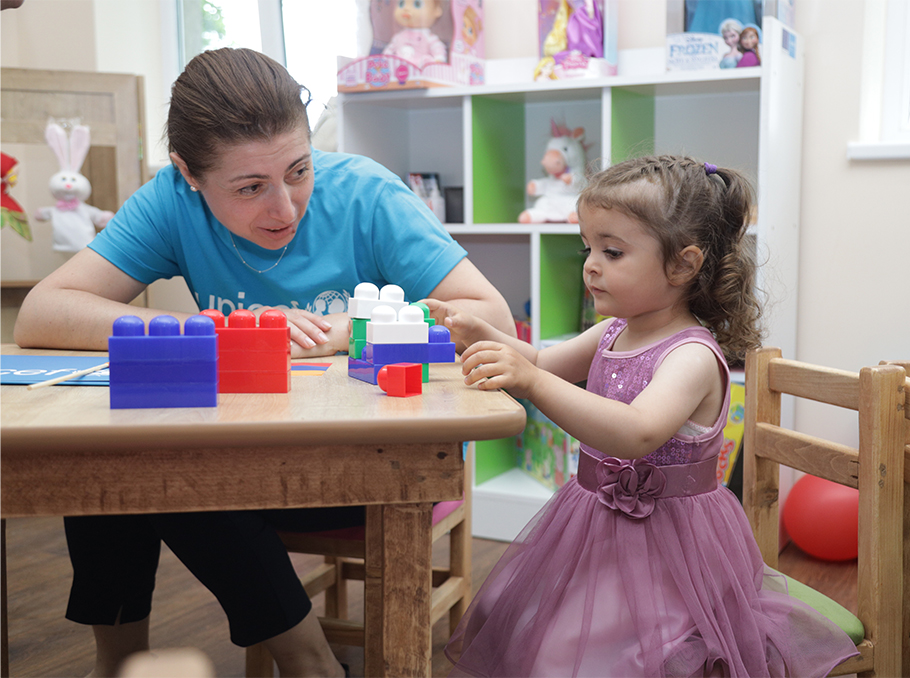
Photo: UNICEF
As part of the project, more than 600 parents in the target communities were invited to informational and awareness-raising meetings on child development and parenting.
Ensuring the further operation of the centres through local governments
One of the project’s conditions was that local self-government bodies should be ready to and commit to cover the running costs of such centres. This would also demonstrate the importance the community gives to early childhood education.
To ease the burden of local governments, UNICEF, in turn, renovated the playrooms, entrances, and toilets for the alternative preschool service within the administrative building. Additionally, an outdoor playground was established. Solar photovoltaic systems were also installed, providing sufficient energy for lighting, heating, and other settlement needs.
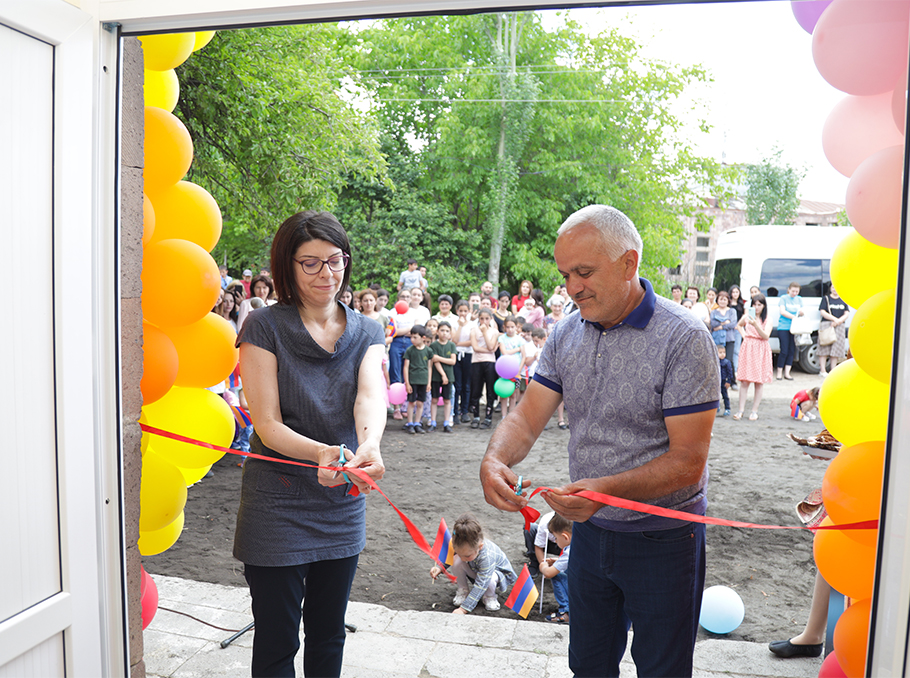
Photo: UNICEF
Another project condition was that the centres be registered with a lead preschool educational institution operating in the community. The latter serves as a base and maintains direct connections with the methodological and administrative management of the alternative preschool services, which helps ensure the project’s longevity.
As a result, 25 alternative preschool services and 23 referent kindergartens were equipped with soft furnishing, didactic materials, developmental games, and books. In the Syunik region, alternative services were established in the rural settlements of Hartashen in Goris, Karashen and Khoznavar in Tegh, Shvanidzor in Meghri and Tsghuk in Sisian.
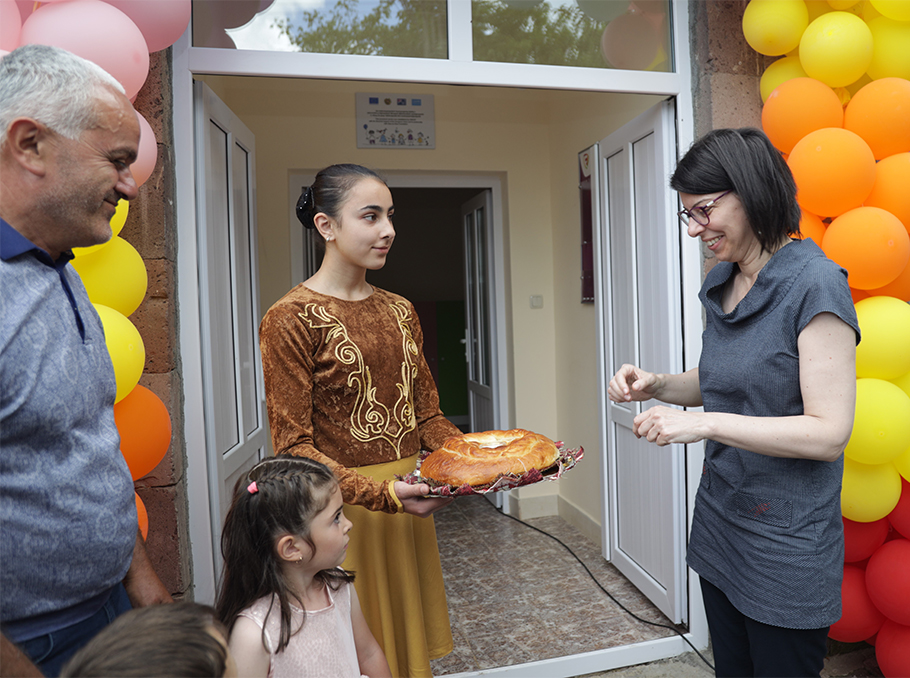
Photo: UNICEF
Additionally, to ensure the effective organisation of the educational process, UNICEF and partners trained employees of both the alternative preschool services and the basic preschool educational institutions. Continuous mentoring and supportive supervision were also provided.
During the project, 80 women aged 20-45 from the target settlements, including 20 from Syunik, were trained. Some 80 per cent of those trained were employed in the alternative preschool services, while the others found work as teacher’s assistants and librarians.
Future Today also solved the employment issue of women in the village
Five employees work in the border settlement of Hartashen's alternative preschool service, with only one having previously worked at the Goris preschool.
“The opening of the centre gave me the opportunity to do my favourite work. I enjoy working with children, but until now there was no suitable environment for working. The project provided me with a job, and the training helped me acquire and apply in-depth knowledge,” Kristine Paroyan, a professional methodologist now working as a teacher, said.
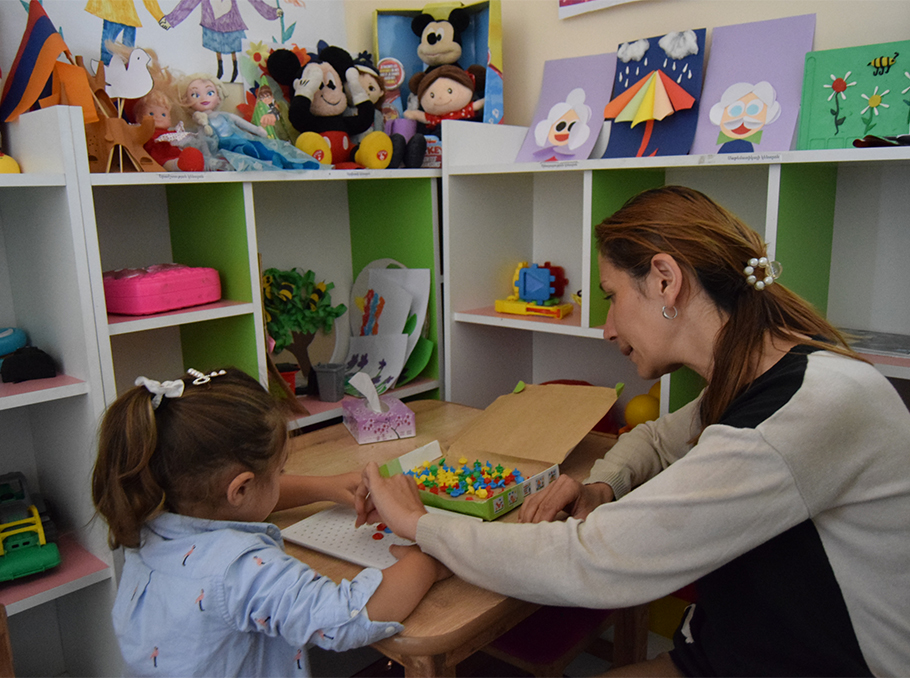
Photo: Mediamax
“Introducing new standards and preliminary training was important for both the centres and the referent kindergartens/preschool educational institutions. They contributed to the implementation of educational activities at a higher level and the provision of education. Our tutors have been trained to mentor branch employees during educational activities,” Varduhi Zeynalyan, director of the basic preschool educational institution, said. She added that the project gave them the experience of remote working with different age groups operating in an alternative model, which they did not have before.
The employees of the newly opened preschool services are women from the respective settlements. In some cases, this condition caused certain complications, as not all rural settlements had a relevant specialist. However, Maya Simonyan noted that “we were trying to find the best possible option. If there was a candidate with an education but not a pedagogical one, we addressed the gap through training.”
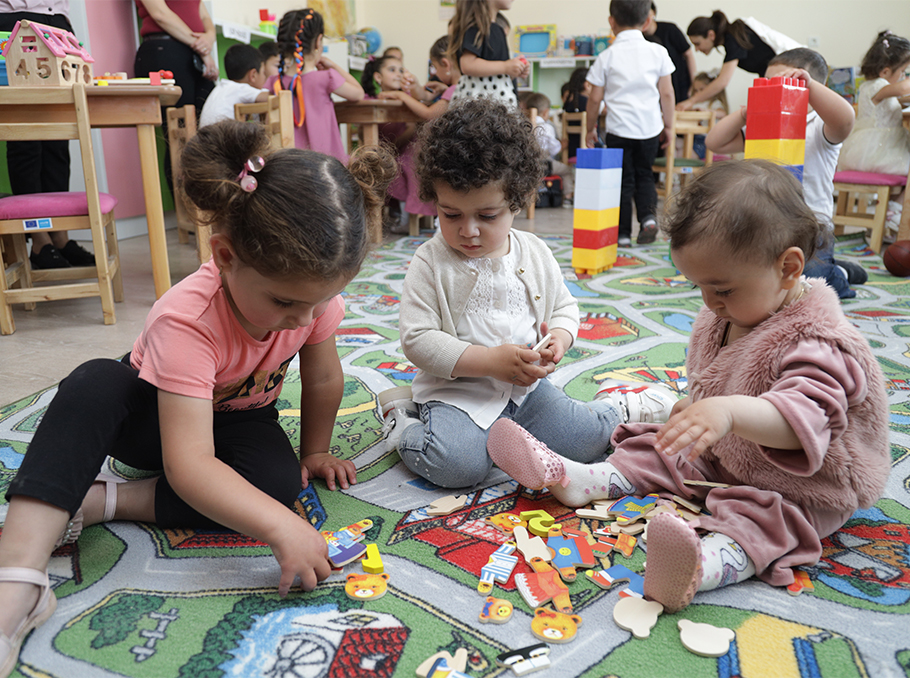
Photo: UNICEF
One of the core objectives of the Future Today project was also to support women living in remote villages by encouraging their active participation in community life, as well as helping them contribute to their families’ income. With the children attending the preschool service, the women could also consider working.
The project mitigated the consequences of the pandemic and Nagorno-Karabakh war
The launch of the project coincided with the outbreak of the COVID-19 pandemic and the Nagorno-Karabakh war. These events led to shifts in state priorities, and the project team implemented coordinated humanitarian response.
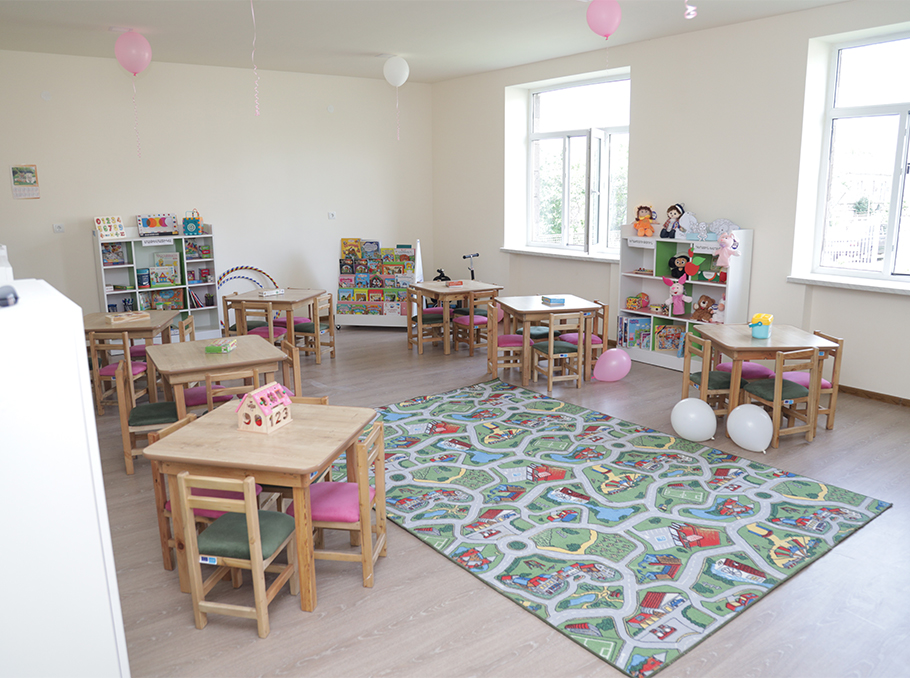
Photo: UNICEF
Epidemic control and prevention measures, as well as translation and localization of various documents, were implemented, helping to create conditions for reopening preschools. More than 370 preschools and schools in the target regions were provided with sanitary and hygiene kits and informational posters.
First aid kits were distributed to all target settlements. Under another programme, training on child development and developmental delays was provided for nurses and family doctors of these settlements and enlarged communities.
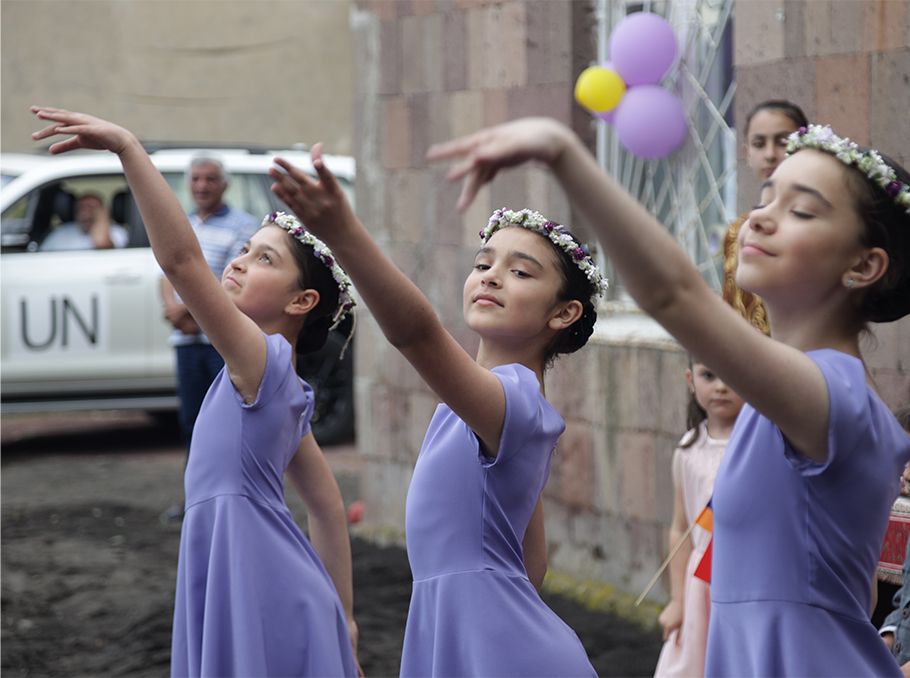
Photo: UNICEF
The UNICEF representative noted that, as a result of collaborative efforts with Armenia’s Ministry of Education, Science, Culture and Sports, a cost-effective model was developed and the definition of alternative preschool service was officially included in the law on preschool education.
UNICEF also supported the development of a state programme for the development of education in the Republic of Armenia (“State Programme for the Development of Education until 2030”), which was approved by the parliament in September 2022.
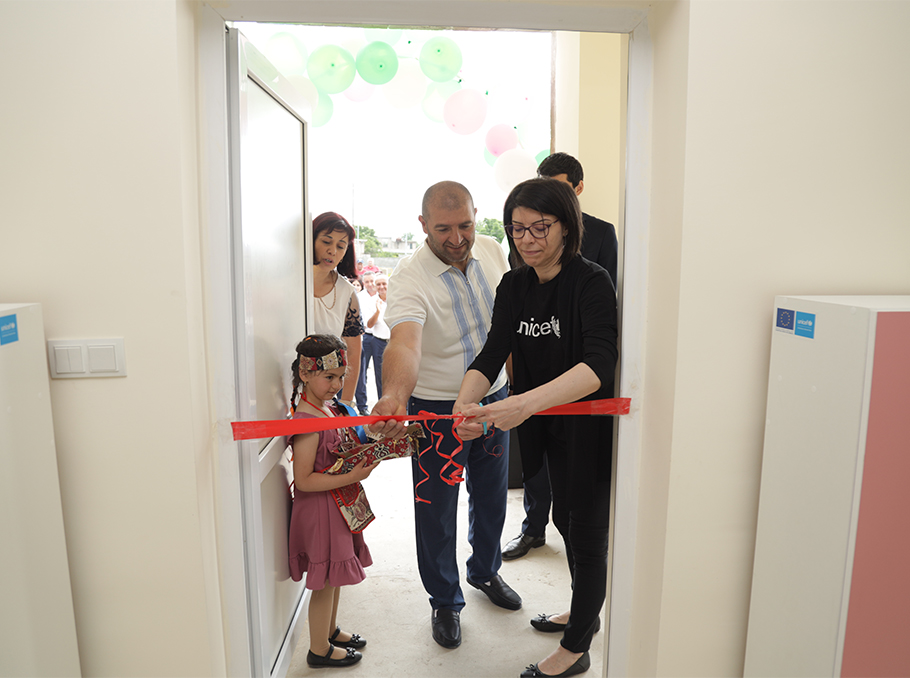
Photo: UNICEF
“This was a significant event for the settlements because preschool services had not been operating here for years. After attending the service, the children go to school more prepared, a fact highlighted by the school’s teachers and management. This is crucial for our entire society because early education enables children to develop their full potential later and achieve their dreams,” Maya Simonyan, UNICEF Early Childhood Development Programme Officer, said.
As for the needs of the population of Nagorno-Karabakh, the preschool services of the communities empowered as a result of the project were ready to accept displaced children as well.
“The Resilient Syunik Team Europe initiative is the joint undertaking of the European Union, the European Investment Bank, EU Member states - Austria, Czechia, Estonia, Finland, France, Germany, Lithuania, the Netherlands, Poland, Sweden, and Switzerland also joining as an external partner. The initiative aims to contribute to the sustainable socioeconomic development of the Syunik region.”
This article was published with the financial support of the European Union. Its content is the sole responsibility of Mediamax and does not necessarily reflect the views of the European Union and Austrian Development Agency.
Anahit Baghdasaryan
Photos by UNICEF and Anahit Baghdasaryan
















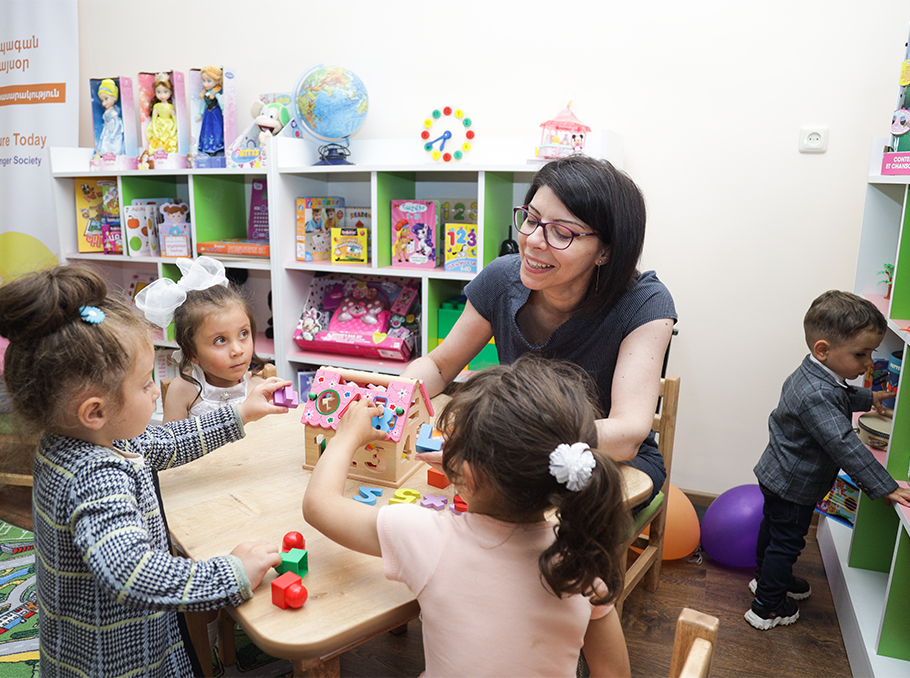
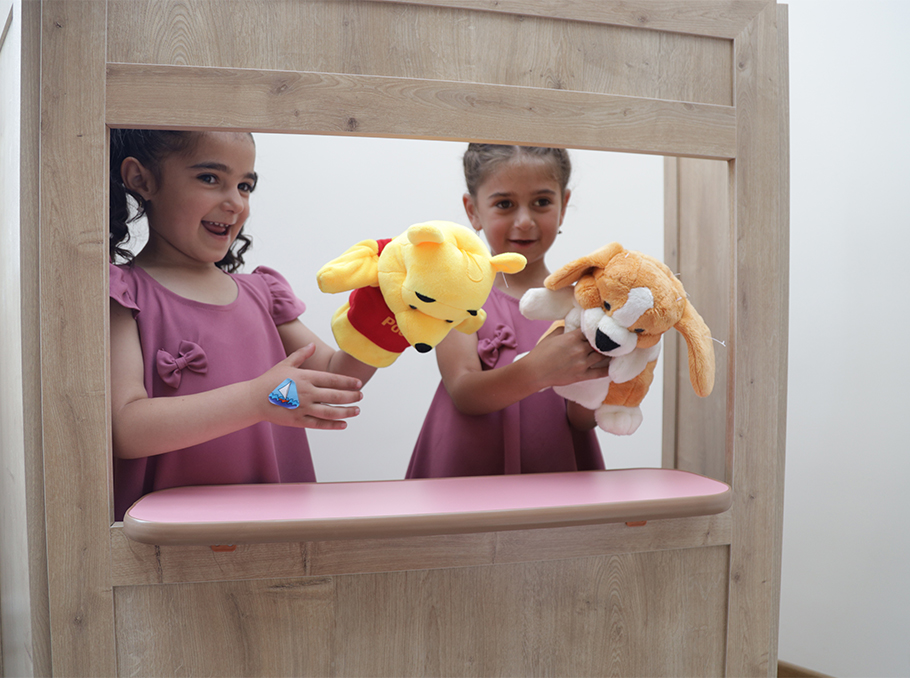
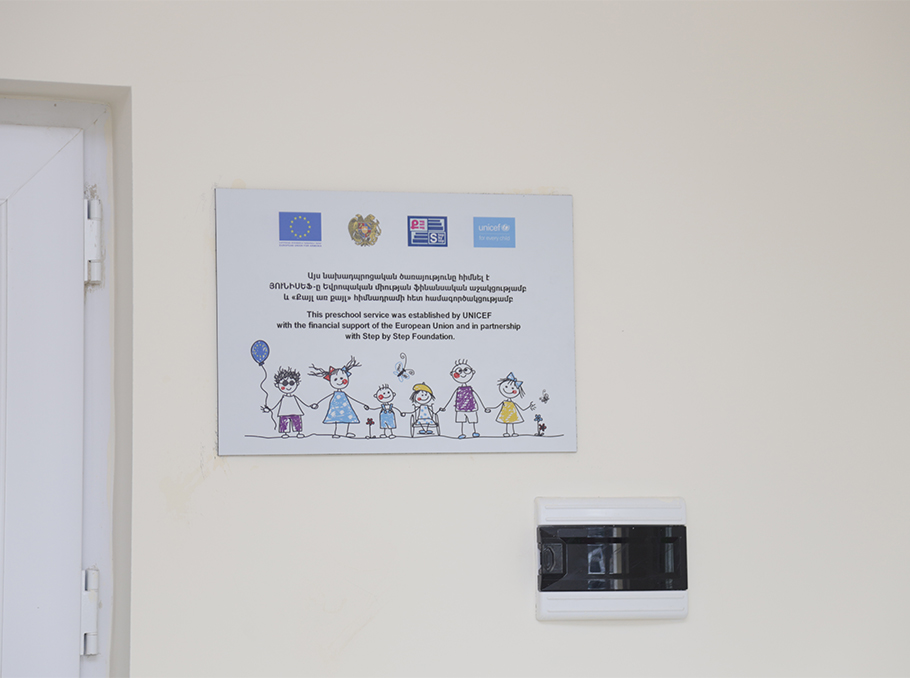


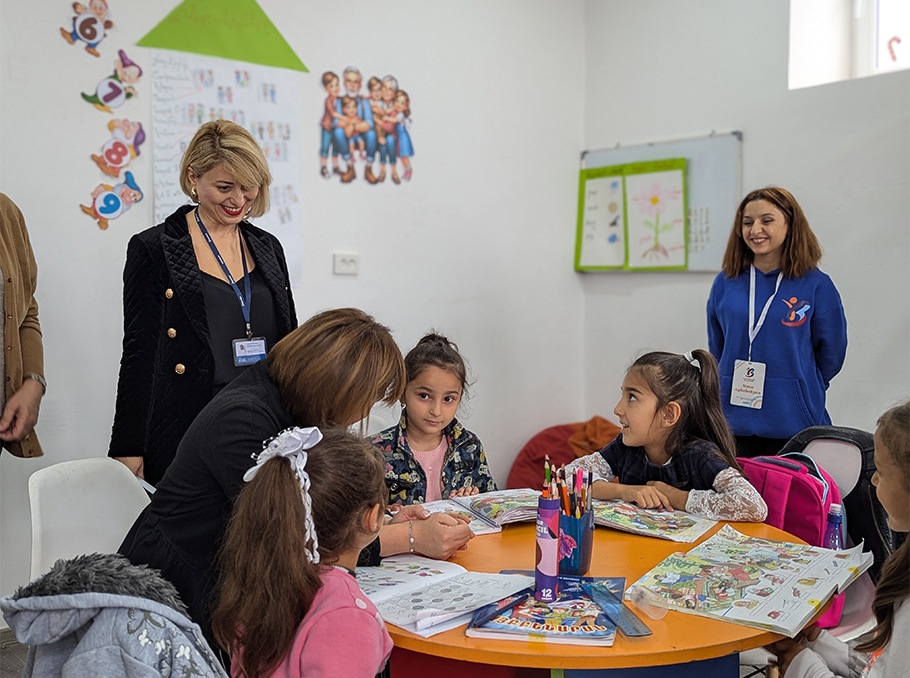
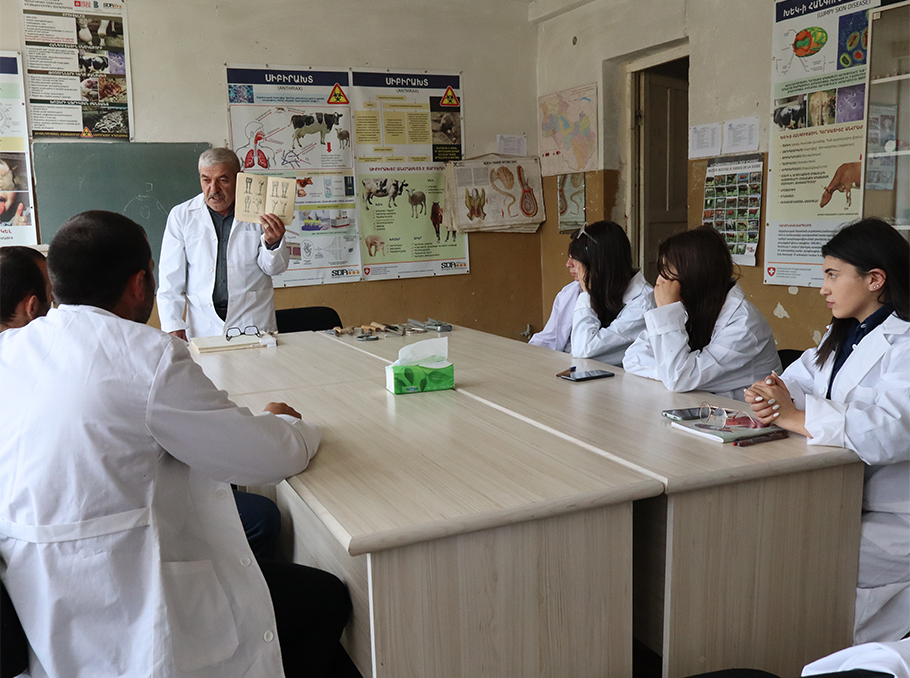
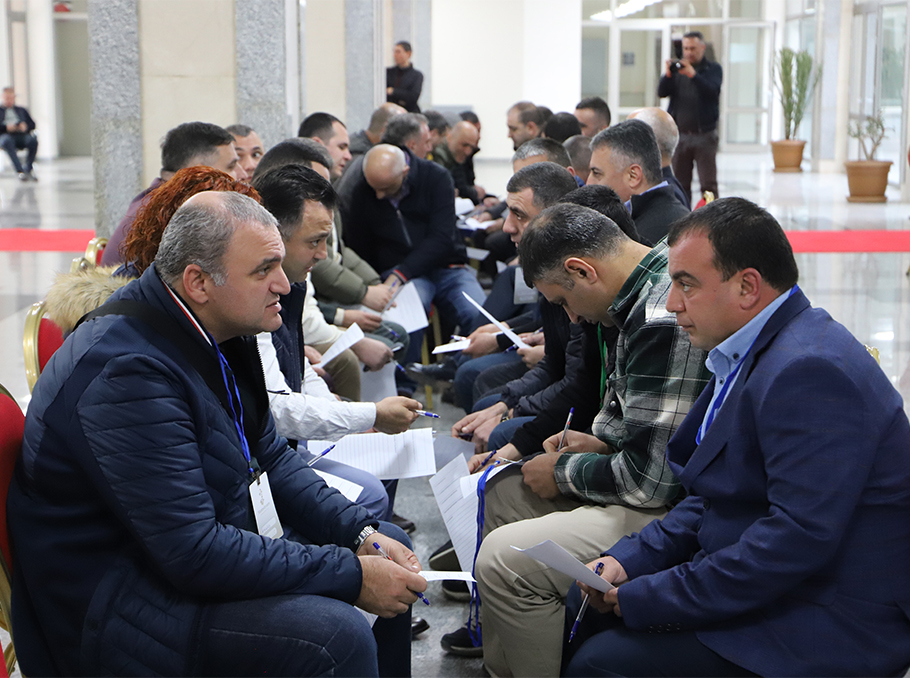
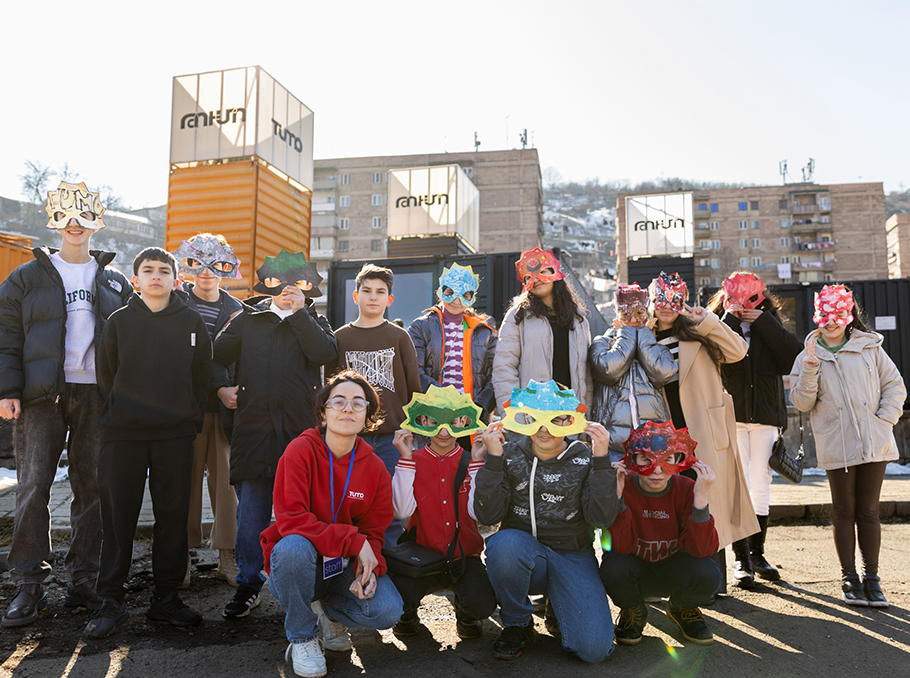






Comments
Dear visitors, You can place your opinion on the material using your Facebook account. Please, be polite and follow our simple rules: you are not allowed to make off - topic comments, place advertisements, use abusive and filthy language. The editorial staff reserves the right to moderate and delete comments in case of breach of the rules.